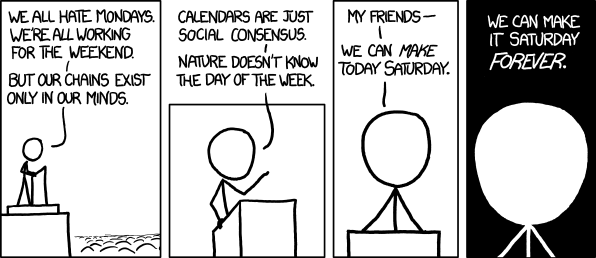New Jacobin, New Blog
August 29th, 2012 | Published in Shameless self-promotion
[A note for whoever still comes around these parts: I now have my own personal [blog on the *Jacobin* site](http://jacobinmag.com/category/st-monday/), where I posted the introduction below. For the time being, I intend to keep cross-posting everything here, and I may also use this space for writings that get censored by our power-mad publisherdon't quite fit the parameters of the *Jacobin* blog.]
As you can see, things have been prettied up quite a bit around here, as Remeike Forbes and Daniel Patterson have stepped up their game once again with a great site redesign.
As part of that revamping, I now have my very own blog, which I guess means I actually have to start blogging again. I'll be back soon enough with my usual ramblings about work, [robots](http://www.nytimes.com/2012/08/19/business/new-wave-of-adept-robots-is-changing-global-industry.html), laziness, [out-of-control intellectual property laws](http://www.slate.com/blogs/moneybox/2012/08/28/apple_v_samsung_the_two_models_of_innovation_that_explain_the_case.html), and [just giving people money](http://www.washingtonpost.com/blogs/ezra-klein/wp/2012/08/08/obama-doesnt-want-to-just-write-welfare-recipients-checks-but-what-if-we-did/), but in the meantime I thought I'd introduce the blog's title.
"Saint Monday" is, naturally, a reference to my ongoing preoccupation with transcending the empty fetish of the work ethic and opening up time for freedom, life and leisure. It refers to a joke from the early days of capitalism, which is recounted by Witold Rybczynski in [this essay](http://www.theatlantic.com/past/docs/issues/91aug/rybczynski-p1.htm) (and also in his wonderful book of the same name):
> Eighteenth-century workers had, as Hugh Cunningham puts it in *Leisure in the Industrial Revolution*, "a high preference for leisure, and for long periods of it." This preference was hardly something new. What was new was the ability, in prosperous Georgian England, of so many people to indulge it. For the first time in centuries many workers earned more than survival wages. Now they had choices: they could buy goods or leisure. They could work more and earn more, or they could forgo the extra wages and enjoy more free time instead. Most chose the latter course. This was especially true for the highly paid skilled workers, who had the greatest degree of economic freedom, but even general laborers, who were employed at day rates, had a choice in the matter. Many of these worked intensively, sometimes for much more than the customary ten hours a day, and then quit to enjoy themselves until their money ran out.
> It was not unusual for sporting events, fairs, and other celebrations to last several days. Since Sunday was always an official holiday, usually the days following were added on. This produced a regular custom of staying away from work on Monday, frequently doing so also on Tuesday, and then working long hours at the end of the week to catch up. Among some trades the Monday holiday achieved what amounted to an official status. Weavers and miners, for example, regularly took a holiday on the Monday after payday—which occurred weekly, on Friday or Saturday. This practice became so common that it was called "keeping Saint Monday."
> Saint Monday may have started as an individual preference for staying away from work—whether to relax, to recover from drunkenness, or both—but its popularity during the 1850s and 1860s was ensured by the enterprise of the leisure industry. During that period sporting events, such as horse races and cricket matches, often took place on Mondays, since their organizers knew that many working-class customers would be prepared to take the day off. And since many public events were prohibited on the Sabbath, Monday became the chief occasion for secular recreations. Attendance at botanical gardens and museums soared on Monday, which was also the day that ordinary people went to the theater and the dance hall, and the day that workingmen's social clubs held their weekly meetings.
Or, for a more contemporary take on the issue, there's [this](http://xkcd.com/1073/):

The just-released [new issue](http://jacobinmag.com/issue/emancipation/) of *Jacobin* has several articles that speak to these themes, including James Livingston's [celebration of "postbourgeois" consumer culture](http://jacobinmag.com/2012/08/how-the-left-has-won/) and---for subscribers only!---Chris Maisano's insistence on full employment as the key to liberation from labor and Audrea Lim's reflections on the importance of ecstatic spectacle.
There's plenty of other great stuff in the issue as well, of course. Check out [Melissa Gira Grant on sex work](http://jacobinmag.com/2012/08/happy-hookers/), [Mike Beggs on David Graeber](), [Seth Ackerman](http://jacobinmag.com/2012/08/american-jacobins/) and [James Oakes](http://jacobinmag.com/2012/08/the-war-of-northern-aggression/) on the Civil War, [Eli Friedman on China](http://jacobinmag.com/2012/08/china-in-revolt/) and plenty more besides.